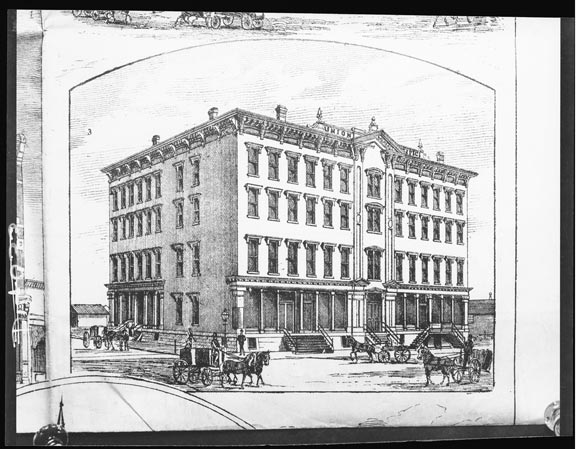When Howard K. Clover disappeared from Omaha in late May of 1900, the departure of a man called a “Mechanical Don Quixote” by the Omaha Daily Bee, was doubtless a relief to many who had suffered financially at his hands. The Bee on June 10, 1900, described Clover as “a character so picturesque that his traits might well inspire the pen of the novelist, as well as the vigilance of the constabulary,” and credited him with the invention of “a gas engine, an air mattress, a motor for bicycles, an automobile, a system of gas illuminations, a duplex typewriter, an engine for an airship and a process for making liquid air.”
Clover, born in Pennsylvania, reportedly began his career as a circus rider. He appeared in Omaha about 1888, where he went to work at Union Pacific headquarters. After a year he quit, complaining of an “affection of the optic nerves,” and soon after tried to launch his first invention-a duplex typewriter-with the help of several Omaha businessmen who invested in the project. After about three months Clover admitted that he could not produce a working model and moved on to other inventions.
He interested two Iowa men in the manufacture of a gas engine he had invented, and they organized the firm of Jackson, Clover & Grady, designated as “marine engine builders, Council Bluffs, Ia. They put in the money and he the experience, and, at the end of three months it was the old story repeated-he had the money and they the experience. Finally, the firm threatened with immediate disruption, he took a sledge hammer and destroyed such of the completed engines as were in stock, thereby reducing the assets of the concern to nothing.”
As the flamboyant Clover launched invention after invention, the Bee marveled at the ease with which he found financial backers for his schemes. When one of them finally had him arrested in 1897, he feigned mental illness. The Bee said, “Whether or not this ruse begot clemency is uncertain, but he was in jail only a short time, and upon being released, regained his mental balance quickly.” Clover’s last manufacturing venture in Omaha involved a “gas engine and automobile enterprise,” but like his other projects, it was not a success and its affairs ended up in district court.
Clover was remembered in Omaha for more than his inventions. Shortly after the Spanish American war broke out he presented himself as a full-fledged lieutenant in the United States Navy. Scoffers were at first silenced by his appearance on the streets in a Navy uniform, shoulder straps and all. When later confronted with a letter from the Navy “to the effect that no such name as Howard K. Clover appeared upon the records of the department,” Clover had a ready answer: “‘Why,’ said he, ‘I resigned my commission in the United States navy to accept one under the Spanish government to superintend the construction of war ships.'”
After he left Omaha in 1900, newspaper accounts of his exploits indicate that Clover continued his colorful career elsewhere. In the early 1910s near Marshfield, Oregon, he masqueraded as a retired naval officer and floated a scheme to manufacture alcohol from potatoes, but decamped with a check for $350 intended for the project. Rumors spread that he had been killed in a railway accident, and his obituary appeared in a local newspaper.
Still very much alive, Clover (described as a “military bunco man” by the San Francisco Call) was later tried and convicted in California for impersonating a naval officer and obtaining money under false pretenses. He ended his career in Los Angeles, where in March 1932, he took his own life after he was arrested on charges of misappropriating money intended to promote a perfume formula.

When Clover first came to Omaha in 1888 he worked at the Union Pacific Railroad headquarters (above). NSHS RG2341-443



